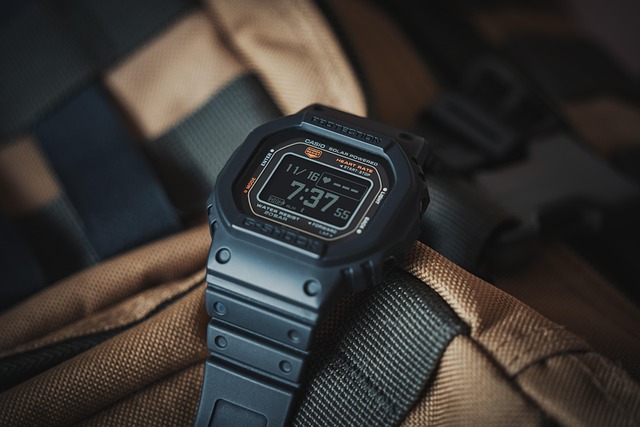Background checks are vital for security industry compliance, screening individuals based on identity, criminal history, employment, and references to mitigate risks and foster trust. Stricter regulations ensure public safety by verifying criminal records, education, employment, drug screening, and mental health evaluations. This process is crucial for maintaining a secure work environment, protecting sensitive locations, and upholding the industry's integrity.
The security industry, tasked with safeguarding individuals and assets, places immense trust in its personnel. Ensuring the integrity of staff is non-negotiable, which underscores the critical importance of thorough background checks. This article delves into the essentials of background checks within the security sector, exploring key elements, legal requirements, and best practices for effective compliance. Understanding these aspects is vital to mitigate risks and maintain the high standards demanded by the security industry.
- Understanding Background Checks in Security
- Importance of Compliance for Security Personnel
- Key Elements of a Thorough Background Check
- Legal Requirements and Industry Standards
- Impact on Employee Screening Processes
- Best Practices for Effective Background Verification
Understanding Background Checks in Security

Background checks are an integral part of ensuring security industry compliance and play a pivotal role in safeguarding sensitive environments, individuals, and assets. These checks serve as a comprehensive screening process that goes beyond surface-level assessments. They delve into an individual’s past, verifying their identity, criminal history, employment records, and even personal references to uncover potential risks or red flags.
In the dynamic landscape of security operations, where personnel interact with diverse clients and sensitive information, thorough background checks are not just a regulatory requirement but a proactive measure. They help identify individuals who may pose a threat due to previous misconduct, unaddressed mental health issues, or undisclosed associations, thereby mitigating potential risks within the security industry and fostering a culture of trust and reliability.
Importance of Compliance for Security Personnel

In the security industry, compliance is paramount. It’s not just a legal requirement—it’s a cornerstone of trust and effectiveness. Security personnel play a vital role in protecting people and assets, making their background checks an integral part of maintaining robust security measures. Non-compliance can lead to severe consequences, including loss of reputation, financial penalties, and most importantly, compromised safety.
Meets the standards set by regulatory bodies ensures that only trustworthy individuals are hired. This process involves meticulous scrutiny of employment history, criminal records, and personal references. By adhering to these protocols, the security industry fosters a culture of integrity, ensuring personnel are equipped to handle their responsibilities with the utmost professionalism and reliability.
Key Elements of a Thorough Background Check

A comprehensive background check is an indispensable tool for ensuring security industry compliance and maintaining public safety. These checks should encompass multiple critical elements to be effective. Firstly, criminal history verification is essential, delving into both state and national databases to uncover any past offenses or pending charges. This step is crucial in identifying potential risks associated with applicants seeking roles within the security sector.
Additionally, a thorough background check should include education and employment verification, cross-referencing official records against provided documentation. This process helps validate skills and qualifications claimed by candidates, ensuring they meet the required standards set by industry regulations. Other vital aspects include drug screening, mental health evaluations (where applicable), and reference checks from previous employers or colleagues to gain insights into the applicant’s character and work ethic.
Legal Requirements and Industry Standards

The security industry is highly regulated, with legal requirements varying across regions. To maintain compliance and ensure public safety, thorough background checks are an integral part of hiring practices for security personnel. These checks go beyond simple criminal records verification to encompass a comprehensive review of an individual’s history, including employment, education, and personal references.
Industry standards dictate that security firms must adhere to strict protocols, employing advanced screening techniques and leveraging technology to minimize potential risks. By adhering to these guidelines, the security industry promotes trust and integrity within its ranks, ultimately enhancing the quality of service provided to clients seeking protection.
Impact on Employee Screening Processes

The security industry’s reliance on thorough background checks significantly impacts employee screening processes, ensuring that only trustworthy and reliable individuals are hired. This meticulous approach involves verifying an applicant’s identity, criminal history, employment records, and other relevant information to mitigate potential risks associated with hiring. With strict background check protocols in place, the security industry maintains compliance with legal standards and regulatory requirements, thereby enhancing operational safety and security.
By adopting robust screening methods, the security industry can proactively identify individuals who may pose threats or have ulterior motives, thereby fostering a secure work environment. This not only protects sensitive locations and personnel but also upholds the integrity of the industry as a whole, ensuring that clients receive the highest level of protection possible.
Best Practices for Effective Background Verification

In the security industry, where trust and reliability are paramount, effective background verification is a cornerstone of ensuring both employee safety and client satisfaction. To maintain the highest standards of security industry compliance, organizations should implement robust best practices for background checks. This begins with comprehensive data collection, encompassing not just criminal records but also educational qualifications, previous employment history, and references. Utilizing advanced digital tools can streamline this process, making it more efficient without sacrificing accuracy.
Regular updates to these checks are vital due to the dynamic nature of personal and professional lives. Continuous monitoring post-hiring is equally important to catch any discrepancies or new information that may impact an individual’s suitability for their role. By adhering to these practices, the security industry can foster a culture of integrity and accountability, ensuring that every personnel decision aligns with ethical standards and regulatory requirements.
